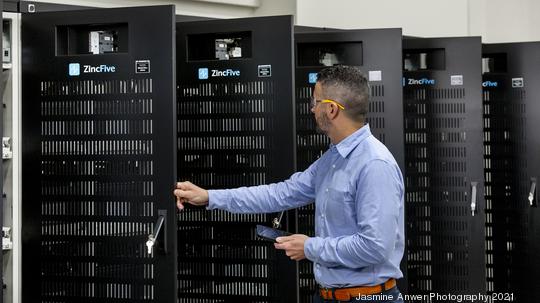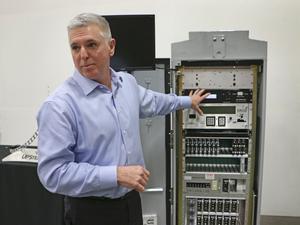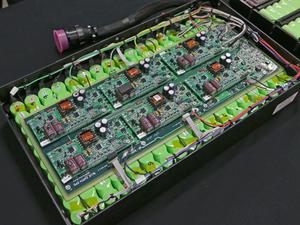
ZincFive has landed a spot in a green-minded Wyoming data center project, giving the Tualatin startup a chance to show off nickel-zinc batteries that it bills as the most sustainable option.
ZincFive has been working for a few years to make gains in providing backup power to server farms. It competes against lead-acid batteries, the traditional choice, and lithium-ion batteries, which have grabbed about 30% of the market in recent years.
“We’ve seen lithium technology make inroads successfully in this market, and we believe our nickel-zinc batteries can do the same,” Steve Jennings, ZincFive’s senior VP for sales and marketing, said in an interview ahead of Thursday’s announcement.
The privately held company, founded in 2015, says it has done 2,500 installations in traffic control systems, its initial market. Jennings declined to say what portion of ZincFive’s sales now go to data centers, although he said the company has done bigger installations than the planned 30-megawatt Wyoming system.
The company revealed a $33 million fundraising last spring.
Wyoming Hyperscale White Box sees its project as the first of a new breed of ultra-green data centers. The company boasts that that the project will be “geothermal coupled” and consume no water with a liquid cooling system while benefitting from a cool southwestern Wyoming climate.
“We’re excited to take advantage of the environmental benefits provided by ZincFive’s sustainable battery solution, as well as their benefits in terms of performance, reliability and exceptional safety,” Trenton Thornock, Wyoming Hyperscale’s founder, said in a news release.
ZincFive says its batteries are more sustainable because they use “environmentally benign” materials that lead to a lower greenhouse gas emissions profile than alternatives in lifecycle analyses. For data centers, these are so-called Scope 3 emissions — those beyond its direct operations and power purchases — that aren’t always part of the equation.
“We’re able to say to the data center community, ‘You have the data and information to include batteries in your Scope 3 greenhouse gas emissions calculations,’” Jennings said. “And so now that the community has this information, they can start including batteries in that calculation, because large data centers will have many, many megawatts of batteries in the facility.”
ZincFive makes a case for its batteries beyond sustainability, as well, claiming a smaller footprint than either lithium or lead-acid batteries, reduced risk of overheating — a rare but acknowledged risk with lithium-ion batteries — and greater reliability.





